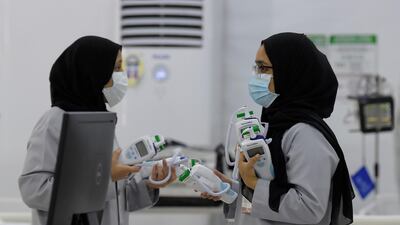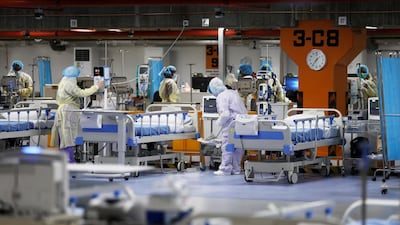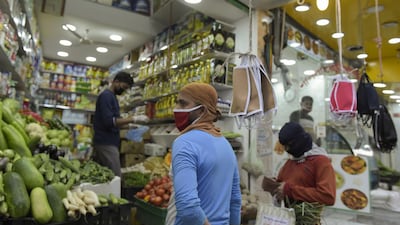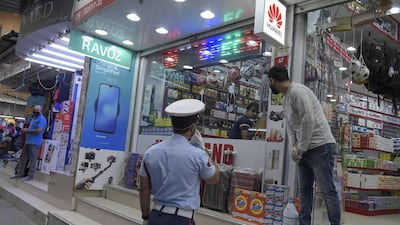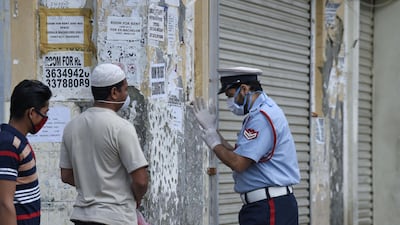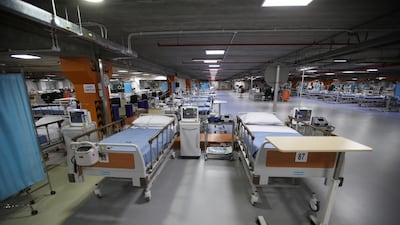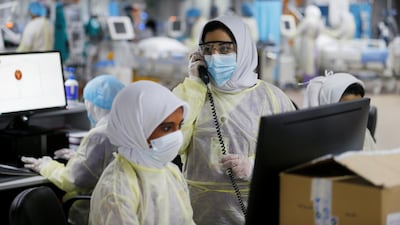Bahrain's latest addition to the fight against Covid-19 is a pair of multilingual, multi-talented robots.
The assistant robots can speak 12 languages, check body temperatures, administer medicines, serve meals and sterilise treatment rooms with beams of ultraviolet light. They will soon roll onto isolation wards to help treat the most vulnerable cases in the kingdom and if all goes to plan hospitals across the country may also get mechanical assistants.
“It is certainly a new medical revolution and we want to see how this benefits patients and staff,” Dr Waleed Al Manea, from Bahrain's Health Ministry, said.
The country has recorded 7,532 cases of the disease with 12 fatalities since the outbreak began and has taken strict measures to curb its spread.
The robots will also aim to limit the interaction of health workers with Covid-19 patients.
“We have started using the robots in the isolation and treatment facilities as part of the experimental phase to use AI in the health sector,” Dr Al Manea, said.
The robots are equipped with sensors and cameras and can communicate with staff and patients in 12 different languages.
“This new technology will help doctors and nurses as they can evaluate the effectiveness of the robots and help incorporate them in their daily work,” he said.
Bahrain plans to "roll out" the robots to hospitals nationwide following the initial pilot phase.
In early May, the country opened a 152-bed Covid-19 field hospital intensive care unit on an empty piece of land in Sitra, as part of a plan to create 500 additional ICU beds for critical cases.
Several public buses have also been converted into mobile testing units.
The government launched a tracking application for confirmed cases, who must wear a monitoring bracelet in isolation.
The "BeAware" app automatically alerts users if they come in contact with people who have contracted the disease.
Authorities said that a quarter of the population is now using the application.
Bahrain made a series of early interventions on Covid-19 including screenings at entry points, travel restrictions on high-risk areas as well as swift isolation and testing of suspected cases.
Earlier this month the country eased its coronavirus lockdown measures.
Bahrain closed non-essential shops and businesses in late March and barred entry of foreign visitors, but did not impose a curfew, unlike some other Gulf states.
